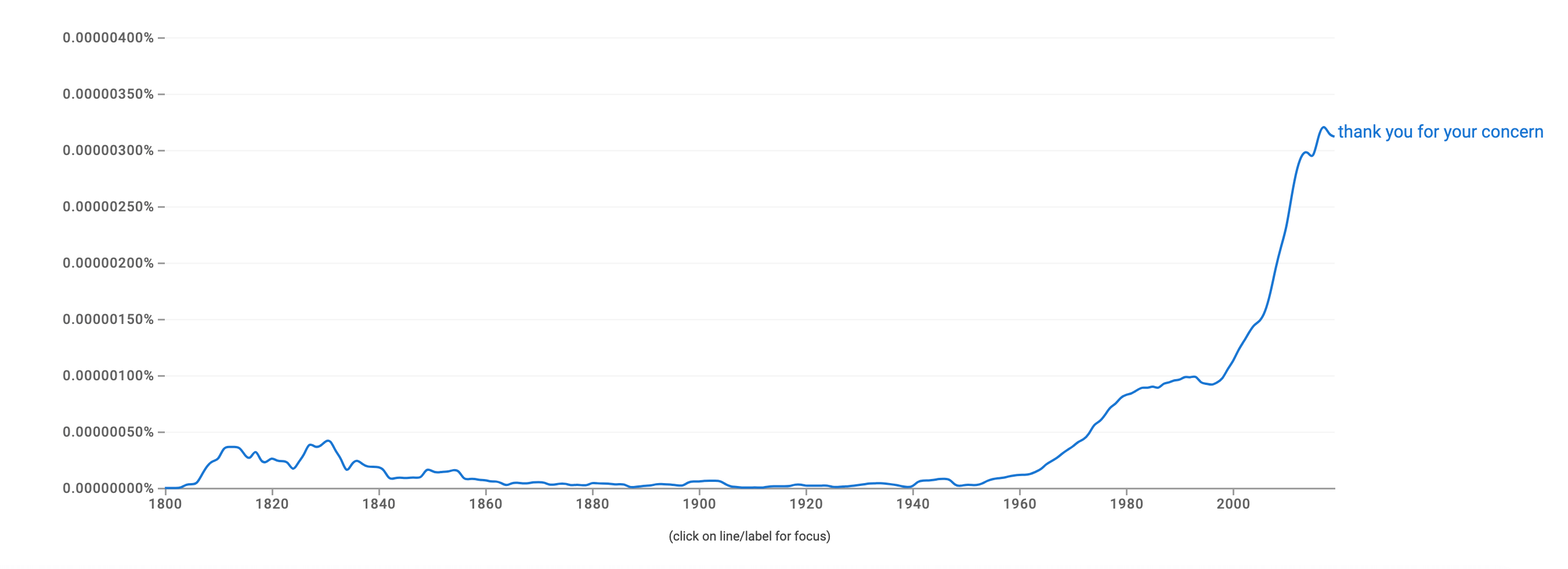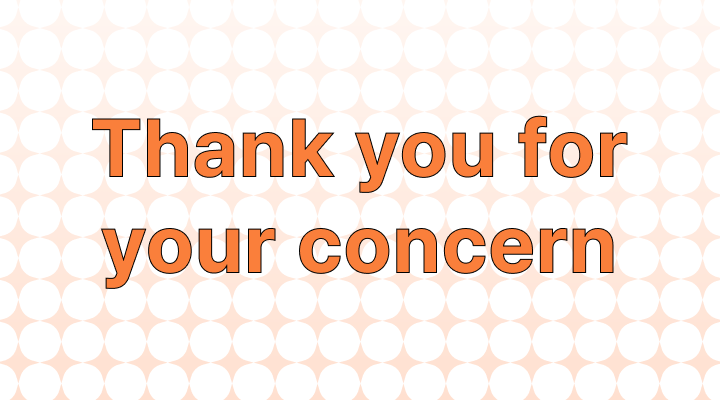- "Thank you for your concern" is an expression of gratitude in response to someone showing care or worry about your well-being or a particular situation. It acknowledges their thoughtful consideration and conveys appreciation for their empathy.
Dear [Recipient's Name],
I hope this email finds you well. I wanted to express my heartfelt gratitude for your concern regarding [mention the situation or context]. Your thoughtfulness has not gone unnoticed, and I truly appreciate your caring gesture.
[Additional details or information if necessary.]
Once again, thank you for your concern. It means a lot to me.
Best regards,
[Your Name]
In the Harvard Health website, a study of couples found that individuals who took time to express gratitude for their partner not only felt more positive toward the other person, but also felt more comfortable expressing concerns about their relationship. With this statistic, we are able to see the importance of appreciating loved ones, so let's practice how to say "thank you for your concern" the correct way.
When to use "thank you for your concern"
"Thank you for your concern" is a versatile phrase, but using it at the right time can make a big difference in its impact. Here are some good times to use it:
When someone expresses worry or anxiety about you:
- When a friend asks if you're okay after a difficult experience.
- When a family member checks in on you during a challenging time.
- When a colleague offers kind words after a setback.
When someone offers unsolicited advice or suggestions:
- When someone shares their concerns about a decision you've made, even if you don't agree with their advice.
- When someone expresses worry about a situation you're in, even if you feel in control.
When someone simply cares enough to ask:
- When a casual acquaintance inquires about your well-being, even if you haven't been close recently.
- When a stranger offers kind words or gestures of support.
Remember:
- Sincerity is key. Make sure your "thank you" feels genuine and conveys your appreciation for their care.
- Context matters. Consider the nature of the concern and your relationship with the person before responding.
- Clarity is helpful. If you're comfortable, you can briefly explain why their concern means something to you.
- Alternatives exist. Sometimes, "I appreciate you caring" or "That's kind of you to think of me" can be equally effective.

Example sentences
- I wanted to reach out and thank you for your concern during my recent challenges; your support means a lot.
- Thank you for your concern about my health; your thoughtful words brought comfort during a difficult time.
- Your genuine concern for our team's well-being is evident, and we deeply appreciate it. Thank you for your concern.
Examples from the web
"Thank you for your concern and thanks for the memories, but Adios!" - Huffington Post
"Thank you for your concern and I appreciate all of the well wishes regarding the birth of my new son." - Huffington Post
"And yes, my son is a computer nerd, thank you for your concern." - TechCrunch
Usage of "thank you for your concern"
Thank you for your concern steeply increased in usage since the 1960s.

FAQ
Should I say thank you for your concern?
Yes, saying "thank you for your concern" is a polite and appreciative response when someone has expressed care or worry about you or a situation. It acknowledges their empathy and fosters a positive connection by recognizing their thoughtful gesture.
What does I appreciate your concern mean?
"I appreciate your concern" conveys gratitude for someone's caring and thoughtful attention to a situation or individual. It acknowledges their empathy and indicates that their expressions of worry or consideration are valued and recognized.
Summary
Mastering the art of using "Thank You for Your Concern" in correspondences is about more than just politeness—it's about building connections and expressing genuine gratitude. Whether in professional emails, personal messages, or responses to critiques, this phrase allows you to navigate empathy gracefully, fostering a culture of appreciation in your communication.

Want to sound like a native speaker?
Engram’s AI-powered grammar checker makes your English sound like a native speaker’s, suggesting natural English expressions on top of fixing grammar, spelling, punctuation, word order, and vocabulary.

References:














